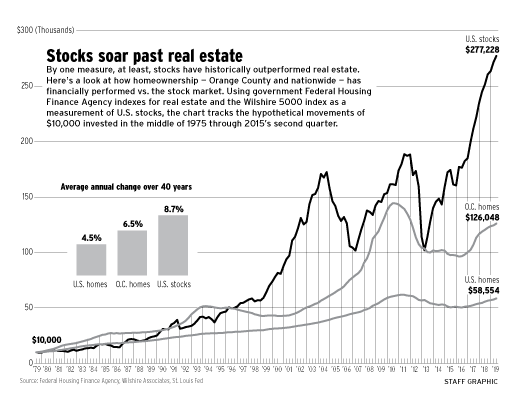What are scalable Businesses? Let’s start by defining them. This article will cover the factors that make a business scalable, and why they are so hard to scale. Once you have your definition, you can start to think about the challenges that may come up. You can see how you can make a business more scalable, or at least less likely to face these challenges. Here are some steps you should take to make your business more scalable.
Scalable business models
The most successful companies in the world are those that use scalable business models to achieve success. These companies leverage external resources and create mutual benefits for growth. They do this through joint ventures, informal mechanisms, and collaboration to leverage shared resources. These companies focus on factors that are valuable to customers. For example, leveraging an open platform to build a scalable business model enables the business to have greater agility. It is possible to build a scalable business model by combining several aspects of a startup.
In terms of size, scalability can be defined as the ability of a business to increase revenue without proportionately increasing its investment. Internet business models are scalable due to the fact that digital technologies are immaterial and are virtually infinitely scalable. Website investments and variable marketing costs may remain the same, regardless of sales volume. Thus, these businesses can grow without having to invest more money or increase the number of employees. Consequently, they can scale up their business without reducing quality or customer service.
When building a scalable business model, executives should only consider investing in it when the returns will be high. If the scaling strategy backfires, executives must exit the business quickly to avoid a costly mistake. The success of any business depends on how well it aligns its Value Propositions and strategic partners. Successful organizations rely on scalable business models to achieve growth. They also sell through multiple channels to increase their reach and client base. This approach is proven to be effective for many well-known companies.
A business model should also be able to scale with the needs of the customer. This is especially true if it involves online sales, which require many customers at the same time. The most effective scalability business models are those that use technology to grow and expand. With good technology, this is a straightforward process. With the right specialists and a well-defined business model, scalability is inevitable. The only way to achieve this is to ensure your company is prepared for growth.
Staple business models are characterized by a high degree of flexibility. Companies with this capability are able to handle sudden growth in demand without increasing overcapacity, and are flexible enough to reduce their capacity during lean times. These characteristics make scalable businesses highly desirable for growth companies. In the end, a scalable business is one that can grow without breaking the bank. They also leverage technology to remain competitive. Foresight is a huge advantage for a business leader.
While the majority of startups don’t consider technology as a critical component of success, scalable businesses can help you achieve exponential growth. For example, you can expand into new markets and increase your market share without having to increase your staff. In these cases, outsourcing is not mission-critical and shouldn’t be your primary method of growth. However, it is important to remember that scaling your business requires careful planning. A scalable business model will increase profits significantly over time.
Factors that make a business scalable
To make a business scalable, a business needs to have the ability to scale. Businesses that fail to scale face several problems. They may have to hire more employees or spend more on customer service. These situations are called diseconomies of scale. They can result in a business’ failure. Scalability is closely related to economics, but it is not a complicated concept. To understand scalability, you must understand what a scalable business is and what makes it successful.
One of the most important aspects of a scalable business is its ability to use customer data. This allows a business to create and maintain a brand that a customer will be loyal to. Scalability also means that a business can constantly improve its offerings based on the needs and desires of customers. Businesses that focus on this can be very successful, and will continue to grow and expand. However, if they fail to invest in these factors, they will suffer the consequences.
The first step to scalability is expanding the skill set of your team. To achieve this, you must hire a team with diverse skills. Each member of the team must understand your goals and strive to meet them on time and without sacrificing quality. Investing in the right team members is an important component of scaling a business. In addition to improving employee efficiency, scaling a business also means having more cash to invest in the business.
Scalability refers to a business’s ability to handle the challenges of growth without sacrificing its structure or resources. In other words, scalability enables a business to grow in size without compromising its ability to meet its objectives. Having a scalable business means that you can increase its profits without incurring higher costs. A scalable business model allows you to maintain control of overhead and improve your product or service at a consistent rate.
Scalability is a key element in success. While true scalability refers to a business’s ability to grow without experiencing growth pains, true scalability refers to allowing for expansion without increasing operational costs. However, even if your business isn’t ready to scale yet, you can still set it up for success by investing in foundational systems that enable it to grow into a larger entity without experiencing painful growing pains.
Challenges to scaling a business model
A common mistake made by many companies is not focusing on their customers. It is easy to lose sight of the needs of your customers as your business grows. This can cause your overall customer experience to suffer. You may find yourself struggling to maintain the “wow” factor that made you famous in the first place. In addition, as your company scales, your team will no longer be able to deliver the same level of customer service.
To avoid these common pitfalls, it is vital to evaluate the market demand for your product or service. If there is no demand for your product, you will soon find yourself in a recession. In addition, you must determine whether or not you have enough cash to continue operating. If there is no demand for your product or service, you may find yourself in a serious debt situation. As you scale, you should also determine whether your technology will continue to serve your customers.
During this stage of growth, your company’s revenue is increasing faster than costs. However, in some cases, this can be expensive and limits your ability to grow your profit margin. For example, a startup’s sales team might need to hire five additional salespeople to handle a growing number of new accounts. In this situation, the revenue generated by those new accounts is offset by the cost of hiring five additional people.
The last major challenge to scaling a business is finding a team willing to work hard and to scale a business model quickly. You may be tempted to scale your business too fast and risk sending the wrong message to staff, customers, and media. In order to avoid these pitfalls, you must plan carefully and have a short-term plan in place. If you’ve never scaled before, you’ll lose your biggest client accounts.
Easily scalable businesses are software, subscription services, e-commerce, digital downloads, franchises, rental properties, retail chains, etc. Many scalable business types include software, blogs or podcasts, online courses, and subscription programs, where you can easily add more clients without significantly increasing your operating costs.
Join The Million Dollar Business Creation (MDBC)™ – Lauching – 50% Discount
Learn How to Start & Scale your Business from 0 to 7 Figures in Less than 18 Months
On the Million Dollar Business Creation, you will learn:
- Secrets of building a multi-million dollar business starting from scratch
- You don’t need to have lots of capital to invest, a prestigious degree or years of experience
- Whether you are just starting out in business or an experienced entrepreneur, this program will give you powerful ideas and strategies that will multiply your business sales and profits exponentially
- Why 90% of Businesses Fail…and how the 10% Succeed
- A Step-by Step Guide on building a business system that works without you How to start a business with very little capital and turn in millions within 18 months
Helpful Links:
Homepage
About
Contact





